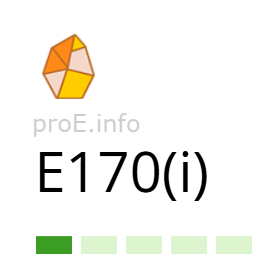
Other names for the additive (synonyms)
General Information
According to the International Numbering System for Food Additives Codex Alimentarius: CXG 36-1989, calcium carbonate (food additive E170(i)) is a subtype of E170 (calcium carbonates).
It is an inorganic compound of natural origin with the chemical formula CaCO₃. Calcium carbonate forms the basis of limestone, chalk, marble, calcite, and the shells of marine organisms.
In the food industry, calcium carbonate is obtained both from natural minerals through purification and grinding, and synthetically — by precipitating from calcium salt solutions when reacted with carbon dioxide.
The resulting powder is white, odorless, poorly soluble in water, and chemically stable.
The main properties of additive E170(i) determine its use: it functions as a white colorant, anti-caking agent, acidity regulator, and source of calcium in foods.
Calcium carbonate is used in confectionery, chewing gum, bakery products, dairy products, and dietary supplements.
Unlike calcium bicarbonate (additive E170(ii)), calcium carbonate is more chemically stable and more widely used in the food industry. This subtype is included in the international standard Codex STAN 192-1995 and in the European Regulation (EC) No 1333/2008, which sets rules for food additives used in food products.
More information about the health effects and safety of calcium carbonates can be found in the general article about additive E170.